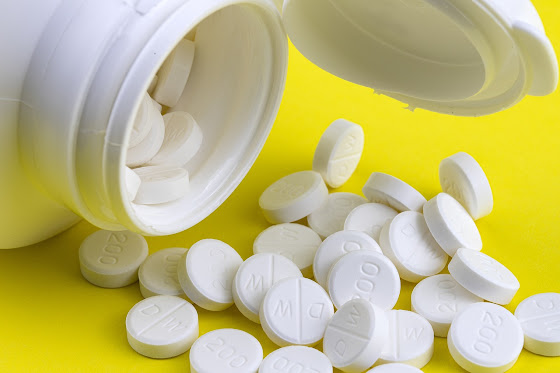15 Aug, 2023 | Muhammad Aleem | No Comments
“Exploring the World of Street Food: Top Dishes, Safety Tips, and Cultural Insights”
Street food is an internal part of Asian culture, street food offering a variety of flavors and food experiences. From bustling night markets to roadside vendors food streets are famous in .
almost all the countries in Asia, street food is a beloved tradition that locals and tourists enjoy. However, behind the and delicious dishes, some dangers are also hidden in this food, that can cause serious risks to our health. In this Content, we will try to spread light in potential harms in case we consume street food in Asia and how to recognize and keep ourselves save forms these risks.
1. Hygiene & Food Safety aspects:
One biggest concern with street food in Asia is the lack of following proper food and safety principles while preparing food. Many street vendors operate in unhealthy places, environments, often lacking access to clean water, refrigeration, and proper food handling facilities. This can lead to the contamination of food with bacteria, viruses, and parasites, increasing the risk of food related diseases like hepatitis, salmonella, E. coli food poisoning etc.
As Street food
stalls, vendors do not possess proper space for handling their operations, are resulting in the shape of cross contamination, due to inadequate separation of materials and cooked /raw food. As the reason, the possibility of cross
contamination will be increased. And the harmful bacteria from raw ingredients would transfer to food. For example, a vendor using the same cutting board or knife for Vegetables, fish meet, mutton, then the possibility of bacteria
spread would likely to increase many times. This will be adding a additional risk to consumers health.
3. Use of Unapproved Ingredients:
Street food vendors may use low-quality, ingredients, raw material, to cross cut their expenses, in this way they are taking risk and playing with the health of their consumers, know drought they are trying to earn some money for their families, but being honest they need to be loyal to their work, the government should also focus and try to provide as much facilities as possible, to improve the food standards of the country. Additionally, certain additives and preservatives, some vendors use nonfood grade products, to cater the need of additives, and coloring, because commercial grade products and colors and additives would provide some financial benefit to the vendors, but on the other side it harms the health of the consumers. It will become more harmful when it comes to health.
4. Inadequate Cooking and bad Storage conditions:
In-proper cooking temperatures and improper food storage can further enhance the risk of food-based illnesses. Improper cooking can leave harmful bacteria alive, while improper storage temperatures can provide opportunity to bacterial growth. There is a need to monitor and regulate this business, it’s important to make sure that street food vendors are adopting the safest cooking, storage practices.
5. Street food vendors have lack of allergen Information:
Street food often lacks clear allergen information, making it difficult for people with food allergies or intolerances to make informed choices. This can lead to accidental consumption of allergens, potentially triggering severe allergic reactions. It’s important for consumers to know about the communicate their dietary restrictions to street food vendors to minimize the risk for people those have allergen natures.
6. Contamination in Environment:
The street environment consists of dust, particles, exhaust fumes, and unhygienic conditions can all impact the safety of street food and these are the major source of contamination in street food, some Vendors operating in polluted areas will face more problems/ challenges in maintaining cleanliness and food standards for safety purposes.
7. Oversight and lack of regulatory bodies:
In some Asian countries, street food vendors provide services in a regulatory gray area, with some limited extent oversight and enforcement of food safety standards. This lack of regulatory work can make it difficult to hold vendors accountable for their practices and ensure the safety of the food they sell to their consumers.
As the street food offers unique food experiences and a taste of local culture, it’s important remain
aware of the potential risks while taking food.
• Visit stalls that have a high turnover of customers, so there is a possibility of getting fresh food.
• Visit the only vendors who gives value to “Good Manufacturing Practices, such as wearing gloves, masks, and covering their hairs, and using clean utensils.
• Ask for freshly cooked food that is served hot, as heat can kill bacteria’s
• Try to avoid undercooked foods, as they pose a higher risk of food related illnesses.
• Use our own mind and observe the cleanliness of the stall before taking any meal from that place, check surrounding environment as well.
Conclusion:
Street food, Hygienic & aspects: It also have more potential risks it poses. Be sure the vendor is following the Good manufacturing practices, & keep yourself away from all types of cross-contamination, improper cooking and storage, lack of information related to different allergens, environmental contamination, and the lack of following the rules and regulation from the district, municipal rules pertaining to the food and safety…. Be careful while having food on the streets in ASIA, and keep yourself healthy……thanks for your precious time to visit this ;page and stay to the end of this article…regards…….
12 Aug, 2023 | Muhammad Aleem | No Comments
“Sip Smart: Unlocking the Modern Benefits of Tea and Caffeine”
“Sip Smart: Unlocking the Modern Benefits of Tea and Caffeine”
When we talk about the Potential Side Effects of Caffeine, a naturally occurring stimulant found in various plants, has become an integral part of modern society. From morning cups of coffee to afternoon pick-me-ups, caffeine is consumed by millions worldwide. This essay aims to explore the fascinating world of caffeine, shedding light on its origins, effects on the human body, potential benefits, as well as the importance of moderation and precautions in its consumption.
A. Historical Background
B. Primary
Sources: Coffee, Tea, Cacao, Kola Nuts.
II. Potential Side Effects of Caffeine on the Human Body :
A. Central Nervous System Stimulation B. Reduction of Fatigue and Promotion of
Alertness C. Blockage of Adenosine Receptors D. Impact on Neurotransmitters: Dopamine and Norepinephrine E. Individual Variations in Response F. Potential Benefits of Moderate Consumption.
III. Precautions and Recommended Consumption :
A. Understanding Tolerance and Sensitivity B. Daily Intake Recommendations C. Potential Risks of Excessive Consumption D. Caffeine Dependency and Withdrawal Symptoms E.Special Considerations: Pregnancy, Medical Conditions, and Medications
IV. Potential Side Effects of Caffeine :
A. Restlessness and Anxiety B. Insomnia and Sleep Disruption C. Increased Heart Rate and Blood Pressure D. Digestive Issues: Acid Reflux and Irritable Bowel Syndrome E. Dehydration and Diuretic Effects
V. Importance of Moderation and Healthy Lifestyle : (more…)
11 Aug, 2023 | Muhammad Aleem | No Comments
Self-Medication Practices in Asia: Trends, Risks, and Cultural Insights”.
In an era where information is readily available at our fingertips, the concept of self-medication has gained significant traction. With a plethora of over-the-counter drugs and alternative remedies readily accessible, individuals are increasingly taking matters into their own hands when it comes to their health. However, beneath the veil of convenience lies a growing concern – the alarming rise of self-medication and its detrimental effects on our well-being. This article aims to shed light on the unique and often overlooked risks associated with self-medication, urging individuals to reconsider this practice for the sake of their health.
The Appeal of Self-Medication; The allure of self-medication is understandable. It offers convenience, cost-saving benefits, and a sense of empowerment over one’s health. The ability to diagnose and treat oneself without the need for professional intervention can seem liberating. However, it is essential to recognize the potential pitfalls that accompany this practice.
The Hidden Dangers
Delayed Professional Intervention:
By relying solely on self-medication, individuals may inadvertently delay seeking professional medical attention. This delay can be detrimental, especially when dealing with serious or chronic health conditions that require timely diagnosis and specialized treatment. Neglecting proper medical care can lead to irreversible damage or even life-threatening consequences.
Self-medication often focuses on alleviating symptoms rather than addressing the root cause of the problem. While this may provide temporary relief, it can mask underlying health issues that require professional diagnosis and treatment. By ignoring the root cause, individuals risk allowing the condition to worsen over time, leading to more severe health complications.
Adverse Drug Interactions:
Over-the-counter medications, herbal remedies, and supplements can interact with prescription drugs or other substances an individual may be consuming. Without proper knowledge of potential drug interactions, self-medication can lead to adverse effects, ranging from mild discomfort to severe allergic reactions or organ damage. These interactions can be unpredictable and may pose serious risks to one’s health.
Inadequate Dosage and Treatment Duration:
Self-medication often involves guessing the appropriate dosage and treatment duration without professional guidance. This trial-and-error approach can lead to incorrect dosing, inadequate treatment duration, or even overdosing. Such practices may render the medication ineffective, promote drug resistance, or result in the recurrence of the condition.and Emotional Implications:
Self-medication can have psychological and emotional implications as well. It may lead to a false sense of security, fostering a belief that one can handle any health issue without professional assistance. This can prevent individuals from seeking the necessary support and care they truly need, potentially exacerbating their mental and emotional well-being.
Conclusion”

Diagnostic inaccuracy, delayed professional intervention, masking underlying issues, adverse drug interactions, inadequate dosage, and psychological implications are just a few of the risks associated with self-medication.
My Advice:
To safeguard our well-being, it is imperative to seek professional medical advice, prioritize accurate diagnosis, and follow prescribed treatment plans. By doing so, we can ensure our health is in the hands of those equipped with the knowledge and expertise to guide us towards optimal well-being.
Masking Underlying Issues:
Self-medication often focuses on alleviating symptoms rather than addressing the root cause of the problem. While this may provide temporary relief, it can mask underlying health issues that require professional diagnosis and treatment. By ignoring the root cause, individuals risk allowing the condition to worsen over time, leading to more severe health complications.
Adverse Drug Interactions:
Over-the-counter medications, herbal remedies, and supplements can interact with prescription drugs or other substances an individual may be consuming. Without proper knowledge of potential drug interactions, self-medication can lead to adverse effects, ranging from mild discomfort to severe allergic reactions or organ damage. These interactions can be unpredictable and may pose serious risks to one’s health.
Inadequate Dosage and Treatment Duration:
Self-medication often involves guessing the appropriate dosage and treatment duration without professional guidance. This trial-and-error approach can lead to incorrect dosing, inadequate treatment duration, or even overdosing. Such practices may render the medication ineffective, promote drug resistance, or result in the recurrence of the condition.
Psychological and Emotional Implications:
Self-medication can have psychological and emotional implications as well. It may lead to a false sense of security, fostering a belief that one can handle any health issue without professional assistance. This can prevent individuals from seeking the necessary support and care they truly need, potentially exacerbating their mental and emotional well-being.
My Advice:
To safeguard our well-being, it is imperative to seek professional medical advice, prioritize accurate diagnosis, and follow prescribed treatment plans. By doing so, we can ensure our health is in the hands of those equipped with the knowledge and expertise to guide us towards optimal well-being.











